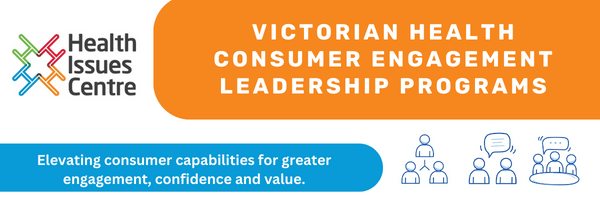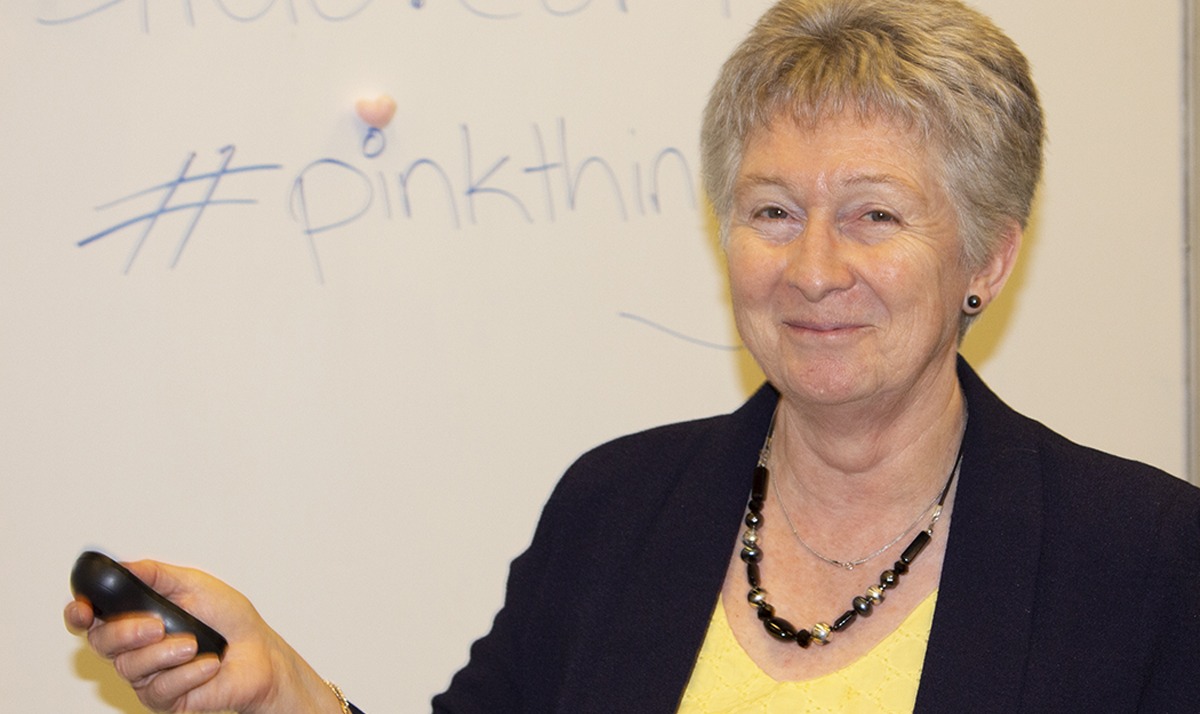What’s the point of training if you can’t prove it’s making a difference?
That’s the perspective of Patrice Higgins, former acting CEO of Health Issues Centre and expert evaluator. Patrice has been engaged by Health Issues Centre to undertake evaluation of training and other consumer engagement projects for the past several years.
“If people are going to make an investment in training – and it’s a big investment – there has to be a clear connection to how the training is helping the organisation fulfil their mission,” Patrice said.
“We started evaluating the training programs a few years ago and back then, there wasn’t a robust evaluation framework in place. We started with one course and we developed a robust evaluation framework.
“What we’re doing is quite innovative work because a lot of people do consumer engagement training, but do you know what the success is?”
“Happy sheets”
She said evaluation had come a long way since the standard “happy sheets” – feedback forms distributed at the end of a course.
“They only go so far in terms of telling you if the aims and objectives of the course have been met,” she said.
“With accredited training there are very specific objectives of increasing the capacity and capability of staff to ensure that staff can go back to the organisation and make a difference.
“We go back to managers and ask, ‘What’s been embedded in the organisation now as a result of the training that is helping them to achieve the overall mission of the organisation?’”
Better health outcomes
A big part of evaluation is ensuring that nobody loses sight of the end goal.
“At the end of the day, we’re looking for improved consumer health outcomes. You can only do that if you are an organisation that is much better at partnering with consumers,” she said.
“We are advocating for people to have a voice and be much more involved in designing, planning, implementing and assessing care within hospitals and health and community services.
“In our evaluation, we’re asking questions like, ‘Can we find evidence that shows we are effectively training people so we can see that they can implement consumer engagement in the workplace? Is there a link between training and other improvements such as meeting accreditation requirements in the workplace? What would you expect them to get from the training so if you go back to their workplace, you can see the evidence that they are implementing it? What changes are there in the workplace?’”
A tangible difference
Patrice recently conducted a pilot evaluation of HIC’s Graduate Certificate in Consumer and Community Engagement (10164NAT) and said rigorously evaluating the effectiveness of training was beneficial because it provided evidence of success.
“The need is there to train people up to have skill, knowledge and capability to undertake consumer engagement and we know we’ve made a tangible impact,” she said.
“There’s now more evidence that the training is translating to changes in the workplace and we can be confident in saying it’s making a difference.”
Patrice is a consultant evaluator delivering qualitative evaluation of Health Issues Centre’s courses. Find out more about our courses here.






